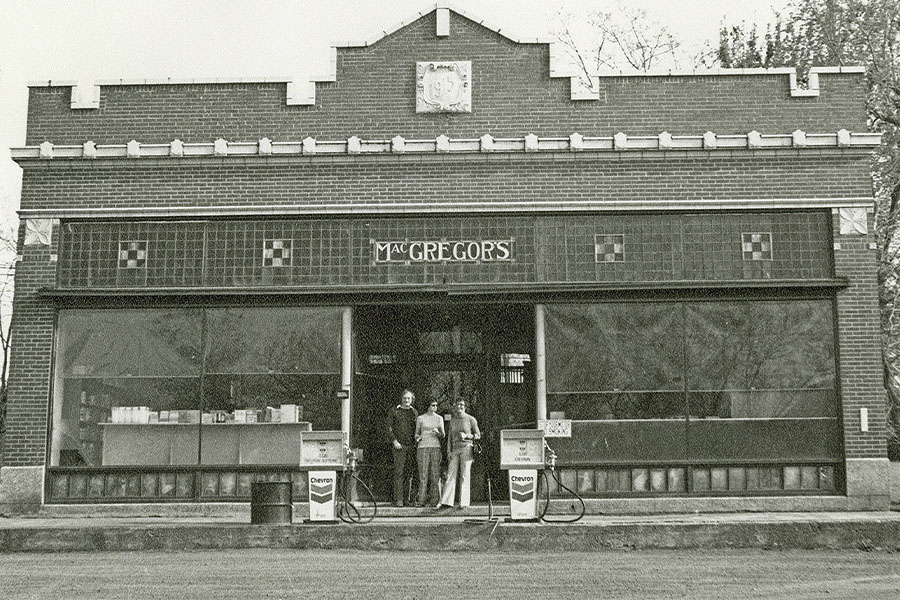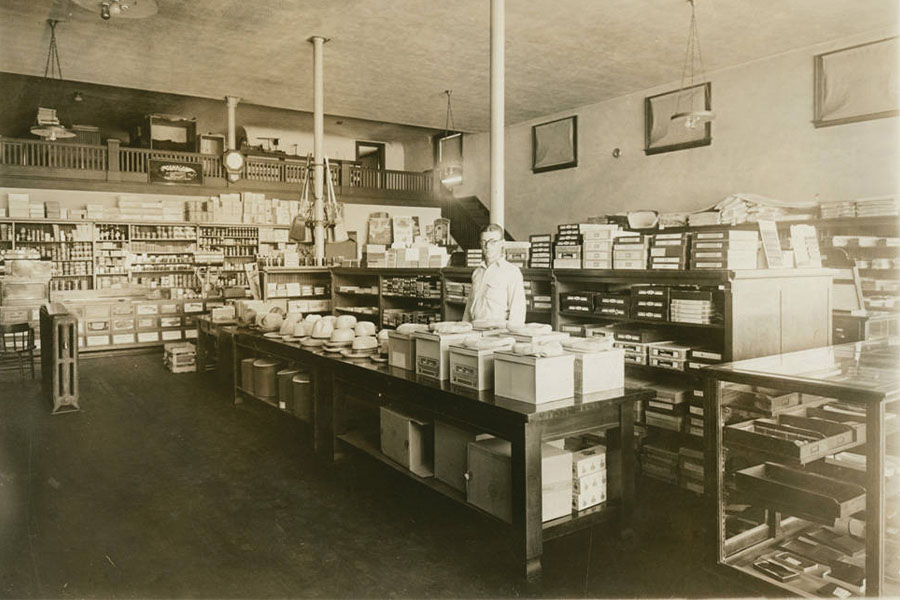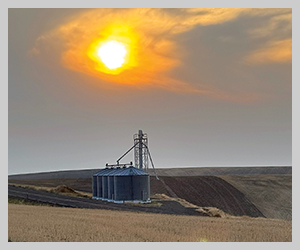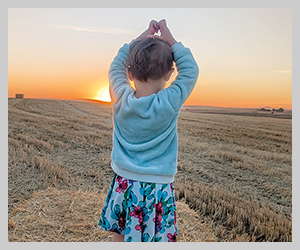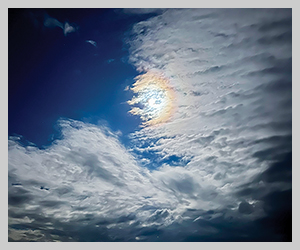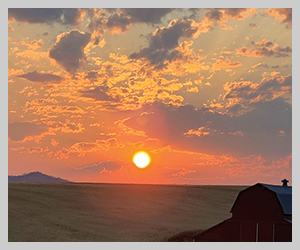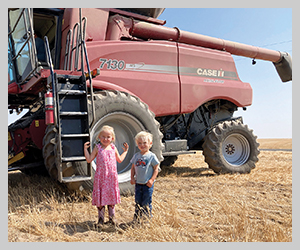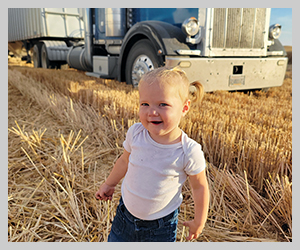The narrator of agriculture’s history in Eastern Washington Alex McGregor, chairman of The McGregor Company
2022February 2022
By Trista Crossley
Editor
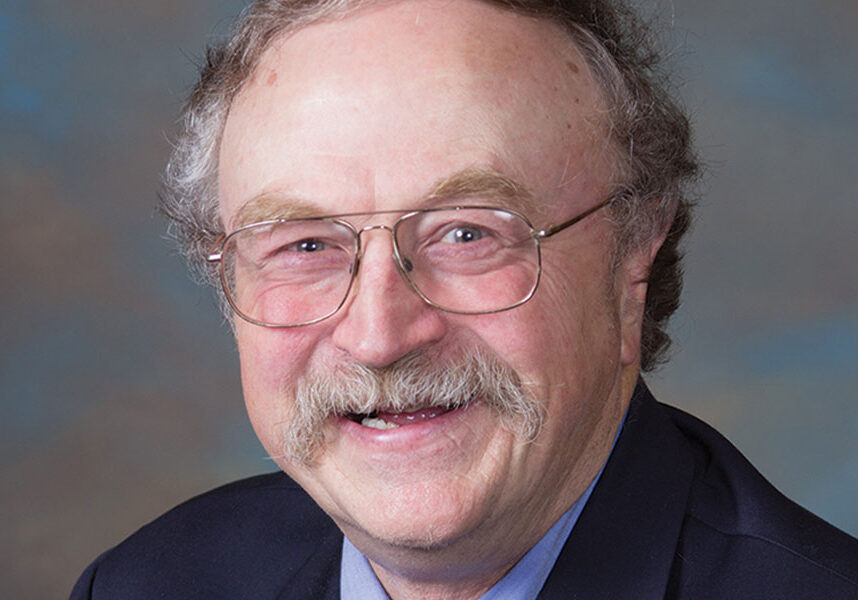
If you’re involved in agriculture in Eastern Washington, there’s a good chance you’re familiar with Alex McGregor. Not only is he chairman of The McGregor Company, which provides seeds, inputs and research to Inland Northwest farmers, he’s also managing general partner of his family’s generational ranch in Hooper, Wash., author of several Pacific Northwest agricultural history books and a very vocal advocate of preserving the lower Snake River dams.
McGregor, who is also a past president (1997/98) of the Washington Association of Wheat Growers (WAWG), was named WAWG’s Outstanding Member of the Year at the 2021 Tri-State Grain Growers Convention in November for all the work he’s done on behalf of the dams. But defending the river transportation system isn’t new to him.
“I found a speech that I’d given about the importance of the dams 27 years ago, long before we built our facility across the river from Clarkston,” he said. “I view that (the river system) as such a crucial part of a remarkably productive land feeding people all around the globe. Without barges, we lose the advantages of reliable, timely and energy-efficient transportation. My concern all along has been that there are plenty of challenges for farm families anyway. We, as Washingtonians and Americans, need to do all we can to help farm families and to not make their lives more difficult.”
McGregor firmly believes that the dams and salmon can co-exist. He has repeatedly said the region needs solutions based on sound science and well-established, analytical research, including research on the impact ocean conditions have on salmon populations. The infrastructure package signed into law late last year provides badly needed funding to improve hatcheries in need of repair, to bolster salmon research and to reduce contamination along the shores of Puget Sound, where an already crowded land added to its ranks 2 million more residents in the last three decades. Washington Sen. Maria Cantwell was instrumental in getting that funding included.
“I think it’s quite possible to have healthy rivers and healthy economies. I think we’ve made a lot of progress. There’s just so much to do related to salmon that we should get off this draconian situation of we either have to forget the salmon and forget our heritage or tear the Northwest economy to pieces,” he said.
Even with his advocacy efforts spanning decades, McGregor said he still isn’t tired of talking about the dams and why they are so important to the Inland Northwest. At the time of this interview, he was recovering from a staph infection that had kept him largely immobile for a few weeks.
“It’s been tough on me for the last three weeks, because I’ve been more or less AWOL. I’m thinking of the battles to be fought! I tell myself to get rolling, that I can do this even with my leg high in the air,” he said, laughing.
The McGregor family has been part of Eastern Washington agriculture since 1882, when Alex’s grandfather and great-uncles settled in Whitman County, headquartering their ranch in Hooper. At first, the family mainly raised sheep, adding wheat in the early 1900s. The ranch was incorporated as McGregor Land & Livestock in 1905 and has been recognized as one of the oldest incorporated enterprises in Washington state.
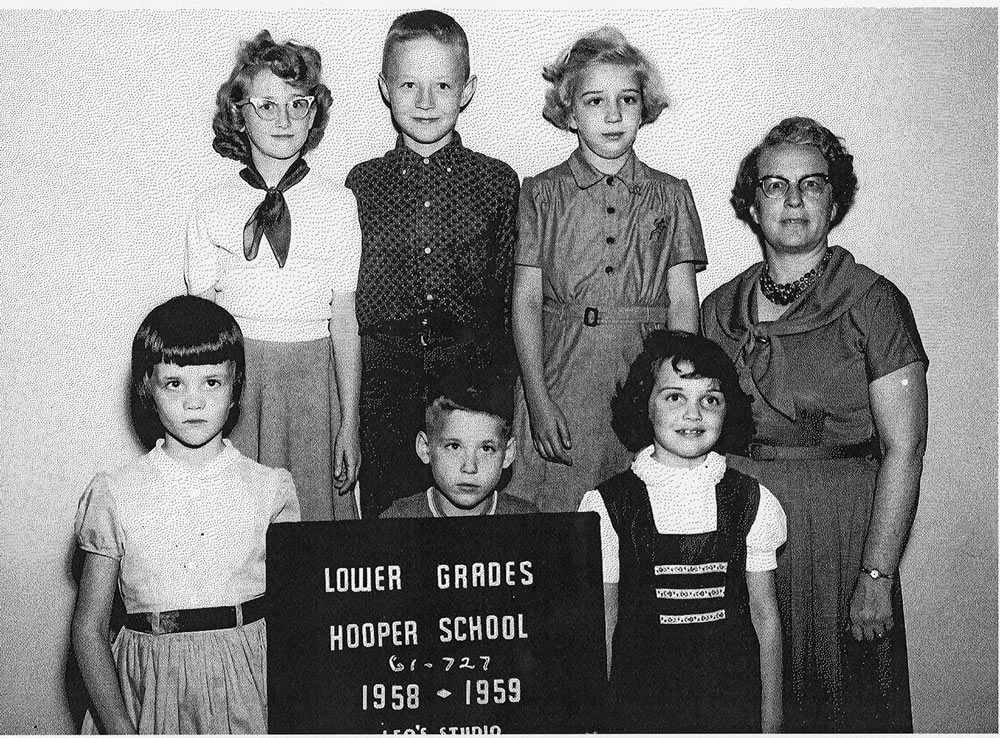
A class photo of the students and teacher of the first through fourth grades of Hooper Grade School for the 1958-59 school year in Hooper, Wash. In the first row, from left, are Mary McGregor, unknown and Nancy Mays. In the second row, from left, are Vickie Tobin, Alex McGregor, Ina Marie Blegan and Mrs. Alley. Photo by Leo’s Studio, 1958. Photo courtesy of the Whitman County Library, from the private collection of The McGregor Company. (WCL0282, washingtonruralheritage.org)
McGregor grew up on the ranch, interacting with a “cast of characters” that included old timers retired from breaking wild horses and a long-time employee who left the Dakotas during the dust bowl by hopping freight trains as a 12-year-old after his parents died. Growing up in that environment nurtured McGregor’s interest in agriculture and its history.
“Was I interested in the family business? I certainly was, but I didn’t go into it because it was expected of me. My dad was quite smart that way. He encouraged me and let me know that was an option. I decided whatever I was going to go into, I was going to approach with a passion,” McGregor explained.
By this time, the McGregors had branched out into other areas of agriculture. The head of the Dryland Research Station at Lind, Harley Jacquot, did research on the McGregor ranch starting in 1948 that showed yields could double or even triple with fertilizer and reduced tillage.
“His senior bosses in Pullman were nearly apoplectic about that because they said moisture is THE limiting factor,” McGregor said. “Well, moisture is a limiting factor, as we all know, but not the one and only.”
When funding for Jacquot’s research was cut short, he continued his research as ranch agronomist, setting up a soil testing laboratory in the basement of the Hooper store and organizing field days at the ranch that attracted hundreds of growers from across the Inland Northwest who came every year to see his latest work.
Starting with a crew of three as a sideline to the store—Jacquot and store clerks Cliff Rollins and Sherman McGregor, Alex’s father—the business grew and was organized in 1956 as The McGregor Company to handle that part of the family’s business, which also included research, seeds and equipment manufacturing.
“I remember, I used to ride with my dad on trips delivering bagged, dried fertilizer to every country store, every service station—everybody handled fertilizer in bags then. One of the great thrills was going over to Lind where there was a hill where dad could accelerate, and we’d be airborne for a while before coming back to ground. So, I grew up around it all,” he said.
After finishing his undergraduate studies at Whitman College, McGregor entered law school, where he became very talented at memorizing “vast amounts of information.” He’d been in law school for about a year when a call from one of his former professors who knew of McGregor’s interest in agricultural history led McGregor to a Ph.D. in history of the American West from the University of Washington. For his dissertation, he interviewed 75 farm families about their history. That dissertation became the basis for his first book, “Counting Sheep.” McGregor went on to teach history at both the University of Washington and Whitman College, including a freshman course on the history of the Pacific Northwest.
“I was surprised and rather stunned that so many people were unfamiliar with agriculture. Many young people felt that, somehow, agriculture used to be simple and in harmony with nature, but somewhere along the way, we had fallen into a precipice of absentee ownership and ignorance of the environment,” McGregor said. Realizing that that wasn’t what he’d grown up around, McGregor decided to return to the family businesses in 1978. “The more I thought about it, the more I thought that history was an important part of who we are and what we do as agriculture, but being a part of using that information and helping make a difference for the future could be really exciting, so I came back.”
Besides “Counting Sheep,” McGregor has also collaborated on two other books, “Northwest Drylands: Seasons,” and “Harvest Heritage: Agricultural Origins and Heirloom Crops of the Pacific Northwest.” He said history gives him a way to get to know the challenges that people have faced and see how they’ve addressed those challenges.
“During the lifetime of veteran farmers who’ve been part of agriculture for upwards of half a century, we’ve increased production 250 percent, reduced waterborne soil erosion 85 percent, reduced dust sixfold and reduced stubble burning twenty-two-fold. Take all that together, those are the biggest gains in productivity and stewardship of any generation since wheat was first sown 11,000 years ago,” he said. “The story I wanted to tell was not specifically about my family. It’s broader than that. I think of the remarkable people who came to this region, a very diverse bunch of people, sometimes to escape persecution, sometimes happenstance, sometimes serendipity. People from all over the globe came here, had to take measure of this land and figure out how to adapt to it. It’s really extraordinary.”
- Alex, Mary and Norma McGregor in front of their store, circa 1974. The McGregors built this store after the original one burned. It is one of three still standing, built at that time, designed by Pullman, Wash., architect William Swain. This building was built by the Esaum Brothers of Colfax, Wash., with building materials from the Colfax brick yard. Photographer unknown. Photo courtesy of the Whitman County Library, from the private collection of The McGregor Company. (WCL0211, washingtonruralheritage.org)
- Alexander Sherman McGregor at work in the Hooper Store in 1929. Sherman was a well-known businessman. He was born to Alexander Campbell “A.C.” McGregor and Jennie Ida Sherman McGregor. His sisters were Mary Elizabeth, Helen May and Marjorie Jean. He was married to Norma Jean Gantzer McGregor. Photographer unknown. Photo courtesy of the Whitman County Library, from the private collection of Alex McGregor. (WCLLLX024, washingtonruralheritage.org)
Listen to McGregor talk, and you can’t help but be struck by how optimistic and enthusiastic he is, whether it’s talking about the dams, testifying before Congress or celebrating the advances farmers have made. He recounted a story about asking his cousin, who ran the ranch for many years, about what it was that helped pioneers succeed in Eastern Washington. According to “Cousin Bill,” those pioneers had three traits: unquenchable optimism, a wry, self-deprecating sense of humor that helped them through the tough times and a tenacity verging on stubbornness.
“For me, unquenchable optimism is what I do. I would rather be self-deprecating. I don’t need the attention. The attention needs to go to remarkable people, remarkable farm families with a remarkable story,” McGregor said, before pausing and adding, “A tenacity verging on stubbornness? Yeah, you could say I’ve got that.”
For the past few years, McGregor has devoted most of his time to addressing issues that could impact growers. Besides the lower Snake River dams, that list includes calling out a poorly written bill forcing landowners to put in permanent buffers, pushing back against overregulation, funding for land grant research to reduce “falling number” risks and helping ensure that incentives for farmers to manage carbon are realistic opportunities for their production region. His son, Ian, has taken over the day-to-day responsibilities of running The McGregor Company, while a ranch manager handles the McGregor Land & Livestock Ranch. McGregor still works on history projects, but said he doesn’t have as much time to devote to them as he used to.
“If I can make a difference once in a while, maybe it’s because I’ve been advocating for a long time, and along the way, I have met and worked with many legislators, agency folks and agriculture and business leaders,” he explained. “What I’ve enjoyed most are the dedicated people who are involved in agriculture. You compare agriculture to almost any other trade, and it’s a tough way to make a living, to be sure, but there are remarkable, dedicated people who are making wise decisions and being careful stewards of the environment every day in what they do.”
While McGregor might have had a head start learning how to address a crowd and hold their attention, thanks to his teaching days, his advice to anyone who wants to hone that skill is simple—you just do it, and it gets easier over time. His other piece of advice to growers who want to share their story is to speak from the heart with a relentless enthusiasm.
“We win battles that way,” he said.
McGregor and his wife, Linda, have three children and 12 grandchildren. The McGregor Company employs approximately 350 people and has offices in more than 36 rural communities in the Inland Northwest. Besides his work with his own company, McGregor also serves on the boards of the Association of Washington Business, the Washington State Historical Society, the Whitman College Farm Committee and La Crosse Community Pride. He is the recipient of numerous awards for his service to agriculture.
There’s no question that shining a spotlight on the history of agriculture in Eastern Washington is a passion of McGregor’s, but what does he think about his own history?
“I think you can call it an eclectic background. There aren’t very many people in the fertilizer business who are former history professors. But I like it. It is an opportunity to tell of remarkable farm families who have persevered and of all they will achieve in the days ahead. Dedicated stewards of the land proud to produce bountiful crops to feed Americans and a growing population of hungry people around the globe. It’s a great story to share,” he said.



